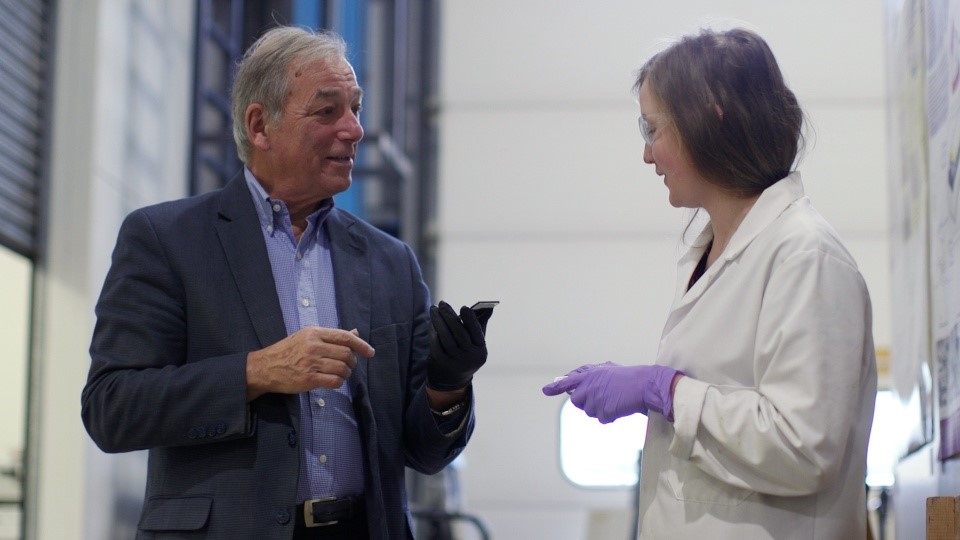The power sector accounts for a quarter of global greenhouse gas emissions and, to meet the goals of the Paris Agreement, we need to move away from coal and towards clean power about five times faster than at present.
There are lots of big opportunities available as generating power using solar and wind is now cheaper than burning coal in most countries, generating more jobs and giving us cleaner air.
In a new video by the Loughborough University PR team, Professor Michael Walls, a Professor in Photovoltaics for Power Systems in the Centre for Renewable Energy Systems Technology (CREST) and the Director of the EPSRC Supergen Solar Network, discusses what has been achieved so far with solar energy, its incredible growth story, and the contributions of Loughborough University in this area.
“Climate change is the most pressing problem facing mankind and we have to find ways of generating power that doesn't produce carbon dioxide, and solar has to be one of those ways”, says Professor Walls.
“The more and more solar we can utilise, the less carbon dioxide we're going to generate so it's an important part of the mix of new forms of energy generation. It’s a very important part of the equation.”
He continued: “In the Middle East, the cost of power from solar utilities is down to one cent per kilowatt hour and even in the UK we're as low as 4.5p per kilowatt hour. It's an extremely attractive form of electricity generation.
“It is growing fast, so for example in 2004 we first got beyond one gigawatt in worldwide production and in 2021 it is forecast that we will exceed 200 gigawatts. That’s a 200-fold increase in 17 years, it’s an incredible growth story.
“The really exciting thing is that the technology is still very young and there is enormous scope to improve solar devices. This will lead directly to lower costs.”
CREST academics have helped improve global understanding of how new solar technologies work – with a particular focus on thin-film solar technology – and how we can increase their efficiency.

Professor Walls says Loughborough University and CREST research is helping lower the cost of solar electricity.
Professor Walls also says that Loughborough University and CREST have “educated a massive cohort of people who have skills in renewable energy and are now working around the world in solar companies or in R&D (Research and Development)”.
He says the combination of research and education will help “lower the cost of solar electricity and reduce greenhouse emissions at the same time”.


